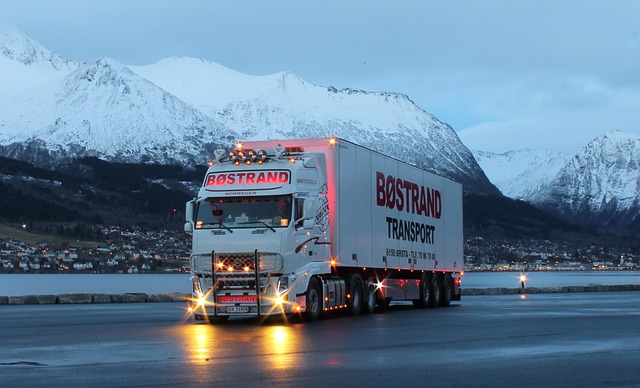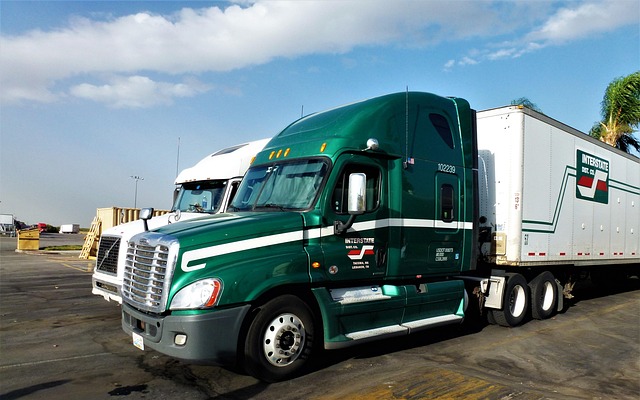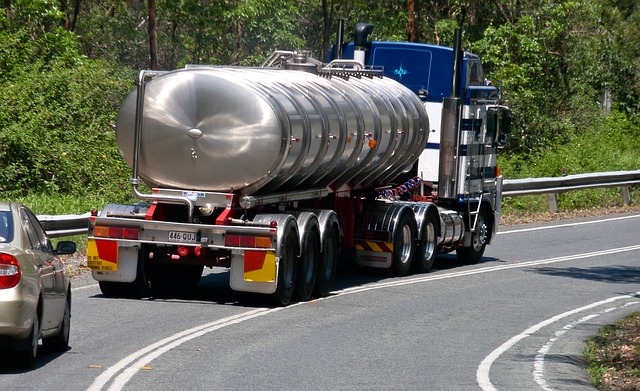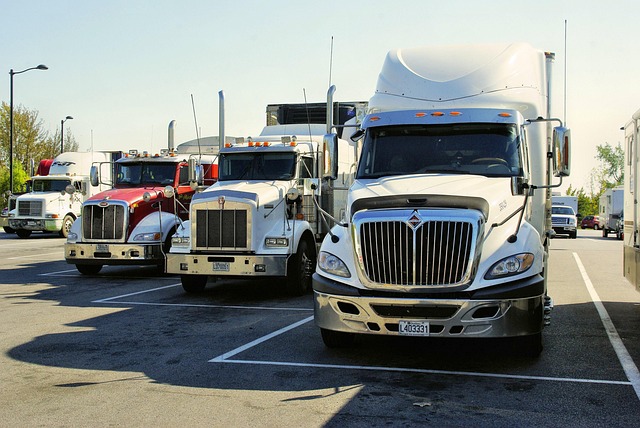Long-haul shipping demands meticulous planning with a focus on operational efficiency, safety standards, and advanced technologies. Select heavy-duty trucks, real-time tracking, and strategic route planning enhance productivity, minimize risks, and reduce environmental impact. By adopting these measures, the industry ensures timely deliveries while navigating diverse terrains and optimizing resource utilization.
Efficient long haul shipping is a cornerstone of modern logistics, ensuring the timely movement of goods across vast distances. This article delves into the multifaceted world of long haul transportation, exploring key strategies to enhance its efficiency. From understanding the unique challenges posed by distance and weather to leveraging advanced technologies for real-time tracking, we examine solutions that optimize routes and maximize operational effectiveness. Additionally, discover the pivotal role of select heavy-duty trucks in propelling progress toward more sustainable and cost-efficient long haul shipping practices.
- Understanding Long Haul Shipping Challenges
- The Role of Heavy-Duty Trucks in Efficiency
- Optimizing Routes for Time and Cost Savings
- Advanced Technologies for Real-Time Tracking
Understanding Long Haul Shipping Challenges

Long haul shipping faces unique challenges that demand meticulous planning and robust solutions. One of the primary hurdles is managing the operational efficiency across vast distances, ensuring timely deliveries without compromising safety. The sheer size and weight of cargo in these shipments necessitate the selection of heavy-duty trucks capable of enduring rigorous conditions. Additionally, navigating through diverse terrains requires advanced engineering to withstand harsh weather and road conditions, minimizing potential breakdowns.
Collision avoidance systems for big rigs play a pivotal role in enhancing safety, especially on congested highways. High-tech semi truck monitoring systems offer real-time insights into vehicle performance, driver behavior, and operational metrics, enabling proactive measures against inefficiencies. Load planning tools for haulers are also essential, allowing for optimized routing, reduced empty miles, and better utilization of resources. These technologies collectively contribute to efficient long haul shipping by mitigating risks and maximizing productivity.
The Role of Heavy-Duty Trucks in Efficiency

In the realm of long-haul shipping, efficient operations hinge on the reliable performance of heavy-duty trucks. These behemoths of the road are specifically designed to tackle the demands of extended journeys, often carrying substantial cargoes across vast distances. Their robust construction and advanced engineering ensure they can withstand the rigours of long hours on the highway and navigate diverse terrains, from paved highways to challenging off-road conditions.
One key aspect enhancing their efficiency is the integration of real-time tracking systems, allowing fleet managers to monitor vehicle performance, driver behaviour, and cargo status seamlessly. This data-driven approach enables proactive decision-making, optimises routing, and enhances overall operational transparency. Moreover, regular maintenance at authorised truck service centers plays a pivotal role in keeping these heavy haulers in peak condition, minimising downtime, and ensuring they remain reliable workhorses on the long haul.
Optimizing Routes for Time and Cost Savings

Efficient long-haul shipping hinges on optimizing routes to minimize time and cost. By leveraging advanced GPS tracking and real-time traffic data, shippers can plan the most direct paths, avoiding congested areas and reducing fuel consumption. This strategy not only cuts down on travel time but also lowers operational costs significantly.
Selecting heavy-duty trucks equipped with green technology is another crucial step towards sustainable long-haul shipping. These vehicles are designed to offer superior performance while consuming less fuel and emitting fewer pollutants. Used semi-trucks for sale under $50k can be a cost-effective solution, providing durable construction site trucks that are suitable for the rigors of long-distance travel. Through strategic route planning and the adoption of eco-friendly heavy duty vans, companies can achieve both efficiency and environmental responsibility in their shipping operations.
Advanced Technologies for Real-Time Tracking

In the realm of efficient long-haul shipping, advanced technologies are revolutionizing the way we track and manage our cargo. One of the most significant developments is real-time tracking for heavy vehicles, allowing shippers and logistics managers to monitor the progress of their shipments with unprecedented accuracy. By integrating GPS and IoT (Internet of Things) devices into select heavy-duty trucks, companies can gain insights into location, speed, and condition of their cargo, ensuring timely deliveries and proactive problem-solving.
Additionally, the adoption of green technology in heavy duty vans is another crucial trend. With a focus on sustainability, these innovations not only enhance efficiency but also reduce environmental impact. Heavy load towing capacity vehicles equipped with advanced engines and fuel-efficient systems contribute to lower carbon emissions, making long-haul shipping more environmentally friendly. This shift towards eco-conscious practices aligns with the global push for greener logistics and showcases the industry’s commitment to a sustainable future.
In the realm of long haul shipping, understanding and overcoming challenges is key to fostering efficiency. The integration of select heavy-duty trucks plays a pivotal role in enhancing speed and durability, while optimized routes ensure time and cost savings for businesses. Moreover, leveraging advanced technologies for real-time tracking revolutionizes logistics, enabling better decision-making and overall operational excellence. By combining these strategies, the shipping industry can navigate the labyrinthine path to more efficient long haul transportation.
